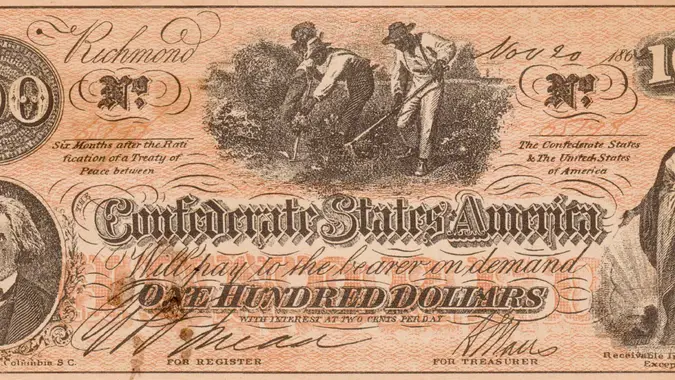The Child Tax Credit Might Have to Be Paid Back – Unless You Take These Steps

Commitment to Our Readers
GOBankingRates' editorial team is committed to bringing you unbiased reviews and information. We use data-driven methodologies to evaluate financial products and services - our reviews and ratings are not influenced by advertisers. You can read more about our editorial guidelines and our products and services review methodology.

20 Years
Helping You Live Richer

Reviewed
by Experts

Trusted by
Millions of Readers
The enhanced child tax credit is designed to give parents financial relief to help deal with fallout from the COVID-19 pandemic, but many might not know that the credits don’t represent free money, like stimulus checks. Some parents who get advance child tax credits might have to pay the money back on their taxes next year if they start spending it right away.
See: You May Want to Opt Out of Monthly Child Tax Credit Payments – Here’s WhyFind: How Do You Plan To Spend the Child Tax Credit? Take Our Poll
The advance monthly payments are set to begin on July 15. Parents can opt out of receiving them, but those who do get them are advised to review their finances before spending the money, CNBC reported.
There are a couple of ways the IRS might tell you to repay the money on your tax return next year. One is if you are overpaid in child tax credits. The other is if a change in your financial situation this year causes you to owe more on your 2021 taxes.
“This is very important for planning and can easily become a trap for parents,” Nate Nieri, founder of Modern Money Management, told CNBC.
The enhanced child tax credit was included in the American Rescue Plan passed earlier this year. It equals $3,000 a year per child for children ages 6 to 17, and $3,600 a year for children under 6.
Eligible families will receive half of their credit in the form of monthly payments from July through December 2021. The rest will be paid out when they file their 2021 taxes. The credit is based on income and starts to phase out for individuals earning over $75,000 annually, or $150,000 for those married filing jointly.
“If you don’t usually receive a refund, then the advance payments could actually cause you to owe more when you file your 2021 taxes,” Ben Wacek, founder of Guide Financial Planning, told CNBC.
One way to avoid having to repay the advance CTC payments is to not receive them in the first place. A separate CNBC report on Tuesday noted that the IRS just began offering an online tool that lets families opt out of the advance payments. Parents who do this will get the entire credit as a lump sum when they file their 2021 tax return next year.
See: If You Don’t File Tax Returns, You Need to Use This Tool to Get Your Child Tax CreditFind: Your 2021 Baby Makes You Eligible for the Child Tax Credit
As GoBankingRates reported in May, there are also other options to avoid having to pay it back. One thing you should do is update information on your marital status, qualifying children and their ages, and income level. The IRS has deployed two specific online portals for parents to report information for child tax credit eligibility. Updating the information will be a critical step in ensuring you won’t have to pay the credit back.
Lower earners might have another way to avoid paying at least part of the credit back. According to the Congressional Research Service, $2,000 per child will be “shielded” from repayment if there is an error due to net changes in the number of qualifying children. For example, suppose one of your children just had a birthday that surpasses the eligibility age, but you already received a payment. Only the amount of benefit you received after $2,000 would need to be paid back.
More From GOBankingRates
 Written by
Written by 

























